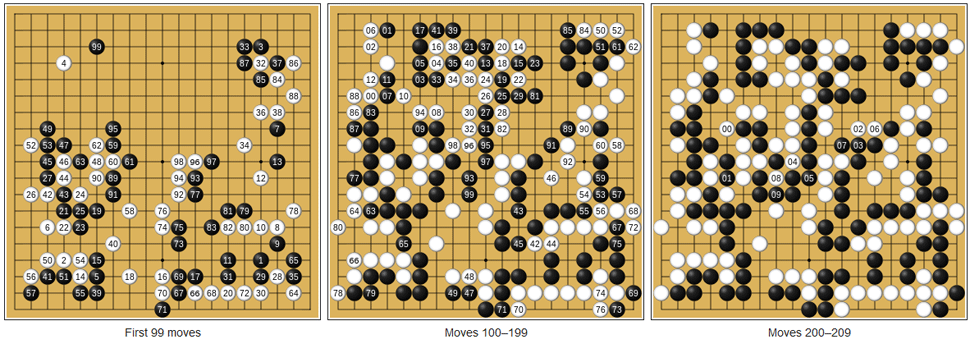
28th May 2017 Google AI beats top human player at Go game At the Future of Go Summit in China, Google's DeepMind AlphaGo AI program has beaten the world's number one Go player, Ke Jie.
Yet another milestone in the rapidly advancing field of artificial intelligence was achieved this week, as a software program designed to play Go was able to defeat the reigning world champion. Computer scientists and futurists had predicted that AI would need at least another two decades before it could master the game. Despite its relatively simple rules, Go is extremely complex – even more so than chess – and has more possible combinations of moves than the total number of atoms in the visible universe. Compared to chess, Go has both a larger board with more scope for play and longer games, and, on average, many more alternatives to consider per move. AlphaGo was developed by DeepMind, a London-based software company acquired by Google for more than $500m in 2014. In October 2015, it became the first computer program to beat a human professional Go player without handicaps on a full-sized 19×19 board. In March 2016, it beat the legendary Lee Sedol in four of five games, the first time a computer program has beaten a 9-dan professional without handicaps. In December 2016, it was chosen by the prestigious journal Science as one of the Breakthrough of the Year runners-up. And now, it has beaten Ke Jie, who has continuously held the world No. 1 ranking for two years, winning three of three games against him. The final match, which lasted for 209 moves, is pictured above. "I'm very sorry I lost," said the 19-year-old, during a post-match press conference in Wuzhen, Zhejiang province. "I wish I could have done better." AlphaGo's algorithm uses a Monte Carlo tree search to decide its moves based on knowledge previously "learned" by machine learning; specifically by an artificial neural network (a deep learning method) by extensive training, both from human and computer play. DeepMind founder, Demis Hassabis, said Ke Jie had played "perfectly" and "pushed AlphaGo right to the limit." The company says the eventual plan is to deploy its artificial intelligence "in areas of medicine and science." They plan to publish an academic paper later this year that will detail the extensive set of improvements made to the algorithms' efficiency and potential to be generalised across a broader set of problems.
---
Comments »
|







